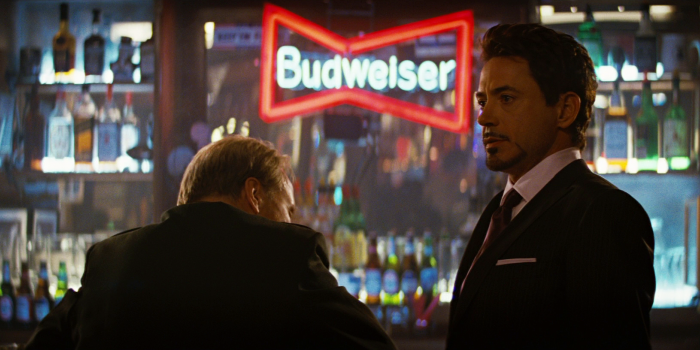
Cast: Juliette Binoche, Jean-Luc Vincent, Emmanuel Kauffman
Director: Bruno Dumont
Country: France
Genre: Biography | Drama
Official Trailer: Here
Editor’s Note: Camille Claudel 1915 is now open in limited release
It’s fitting that the title card of Camille Claudel 1915 should render its date in subtext, as though suggesting this woman somehow dwarfs this time. As played by Juliette Binoche, there’s little she doesn’t: though certainly never a showy performance, Binoche’s work here is titanic, a staggering display of emotional enormity so overpowering it possesses the film, even in scenes without her. But the date also serves, of course, as an effective disclaimer of sorts: this is not the Bruno Nuytten romantic epic that steered Isabelle Adjani to an Oscar nomination in 1989; no, this is a Claudel long-past those days, and a film in the hands of a director far more restrained and reserved in his aesthetic approach.
Binoche’s work here is titanic, a staggering display of emotional enormity so overpowering it possesses the film, even in scenes without her.
 An effective companion piece to Outside Satan, also given theatrical release this year, Camille Claudel 1915 continues Dumont’s thematic obsession with religion; he has here the same tableaux vivants, his characters bowed in awe before the grandiosity of the landscape. But where the elusive aura of that earlier film’s main character never allowed us an understanding of what or whom he bowed to, the new movie’s subjects’ worship is all the more clearly Christian. Indeed, Dumont’s framing of Binoche’s oft-agonised face is eerily akin to Dreyer’s of Falconetti in The Passion of Joan of Arc, the equally skeletal visages those of women subdued by the institutions of their supposed salvation. And as comparably kind as the nuns who care for Claudel and her fellow patients here may be, their dress nevertheless assumes the foreboding flavour of a prison guard uniform.
An effective companion piece to Outside Satan, also given theatrical release this year, Camille Claudel 1915 continues Dumont’s thematic obsession with religion; he has here the same tableaux vivants, his characters bowed in awe before the grandiosity of the landscape. But where the elusive aura of that earlier film’s main character never allowed us an understanding of what or whom he bowed to, the new movie’s subjects’ worship is all the more clearly Christian. Indeed, Dumont’s framing of Binoche’s oft-agonised face is eerily akin to Dreyer’s of Falconetti in The Passion of Joan of Arc, the equally skeletal visages those of women subdued by the institutions of their supposed salvation. And as comparably kind as the nuns who care for Claudel and her fellow patients here may be, their dress nevertheless assumes the foreboding flavour of a prison guard uniform.
The chilling gauntness and ghostly pallor Binoche sports speaks every bit as much as she herself does not: given little dialogue, the bulk only in her final moments, she is entrusted with expressing the emptiness of this woman’s existence largely through her emptied eyes alone. As they track across a carpet, tracing the path of the sun’s rays as though seeing them for the first time, they make all too appreciable the two years’ worth of days thus far spent tucked away from the world. There’s a harrowing dichotomy to this performance: at times seeming only bored, at others deeply disturbed, Binoche makes of Claudel a figure as impenetrable as that at the centre of Outside Satan, as impossible to ever truly understand.
But amidst his plentiful religious allusions, he is at heart a humanist in the mold of Bresson, a comparison aptly earned here as ever in his casting of non-professional actors.
 Dumont’s direction offers few clues, and it would be easy to accuse his aloof eye of dispassion. But amidst his plentiful religious allusions, he is at heart a humanist in the mold of Bresson, a comparison aptly earned here as ever in his casting of non-professional actors. It seems almost a prerequisite to disclaim the potential exploitation in casting the mentally disabled, yet in a sense exploitative is precisely what it is, albeit more of reality than of these people. For Dumont, above all, is a realist: his gaze, so easy to decry as cold and devoid of compassion, is all the more compassionate for its willingness not to deny the tougher truths of life. In a disturbing scene noted by many for its humour, he trains the camera almost entirely on Binoche’s face as she watches a disastrous effort to mount a play with the patients, cutting only very briefly to the onstage action. The tearful tremors that slowly overwhelm their wide-eyed amusement are as effective a summation of the story as the film has to offer.
Dumont’s direction offers few clues, and it would be easy to accuse his aloof eye of dispassion. But amidst his plentiful religious allusions, he is at heart a humanist in the mold of Bresson, a comparison aptly earned here as ever in his casting of non-professional actors. It seems almost a prerequisite to disclaim the potential exploitation in casting the mentally disabled, yet in a sense exploitative is precisely what it is, albeit more of reality than of these people. For Dumont, above all, is a realist: his gaze, so easy to decry as cold and devoid of compassion, is all the more compassionate for its willingness not to deny the tougher truths of life. In a disturbing scene noted by many for its humour, he trains the camera almost entirely on Binoche’s face as she watches a disastrous effort to mount a play with the patients, cutting only very briefly to the onstage action. The tearful tremors that slowly overwhelm their wide-eyed amusement are as effective a summation of the story as the film has to offer.
It’s not untoward to accuse Dumont’s film of slightly losing its way when it leaves Camille to briefly join her brother Paul as he journeys to visit her. Such is the strength of Binoche’s performance that her presence lingers even over those few scenes that exclude her. The thematic stage-setting that short sequence comprises, though, is key to the climax of their meeting, and the movie’s compelling closure precisely where it opened. Among the film’s final shots is a zoom to close-up on Binoche so slow it packs all the surprise of a jump cut when we realise just how long we’ve been lost in her eyes and the simple, soulful sadness that fills them. As the film concludes on a screen spreading captions explaining her fate across her face, cast in a rare smile, we realise that it’s had precisely the same effect itself.
[notification type=”star”]85/100 ~ GREAT. Camille Claudel 1915 is all the more compassionate for its willingness not to deny the tougher truths of life.[/notification]




Pingback: http://akgulinsaat.com.tr/?option=com_k2&view=itemlist&task=user&id=60449()
Pingback: webcam werk()
Pingback: guitar picks()
Pingback: guitar picks()
Pingback: yspro.ne.jp()
Pingback: great deals()
Pingback: banheiras()
Pingback: Green SEO Writing()
Pingback: recycle clothes for cash()
Pingback: what to take with raspberry ketones()
Pingback: porno()
Pingback: esta()
Pingback: Enlarged prostate supplement()
Pingback: find()
Pingback: read this article()
Pingback: ecograf portabil()
Pingback: curso de detetive particular profissional()
Pingback: Best buy cell phone accessories()
Pingback: medora centre()
Pingback: paintless dent repair training()
Pingback: plumbing repair Cherry Creek()
Pingback: roofing()
Pingback: roofing()
Pingback: ramalan zodiak()
Pingback: foundation repair()
Pingback: foundation repair()
Pingback: Hirelay technology()
Pingback: www.rfidang.com()
Pingback: short film()
Pingback: league of legends clothes()
Pingback: best app developers()
Pingback: personal injury lawyers in Ottawa()
Pingback: Madden Nfl Mobile cheats()
Pingback: Academy Awards live stream()
Pingback: valentines day 2016()
Pingback: Brenton Greenwade()
Pingback: Silkscreen()
Pingback: Laser hair removal nyc()
Pingback: golf ball barrier nets()
Pingback: jamu kuat()
Pingback: ebay deals for new shoppers()
Pingback: seo training minneapolis()
Pingback: golf netting()
Pingback: local dog groomer()
Pingback: Escort()
Pingback: Irvine Eye Doctor()
Pingback: apple shooter()
Pingback: medical shuttle()
Pingback: Stop Foreclosure Schertz Texas()
Pingback: How To Sell My House Without a Realtor San Antonio Texas Area()
Pingback: midbrain activation()
Pingback: Read More Here()
Pingback: look what I found()
Pingback: professional automotive window tinting austin()
Pingback: code anals()
Pingback: at here()
Pingback: frankies bikinis one piece swimsuit()
Pingback: best restaurant birmingham()
Pingback: digital signs()
Pingback: car wash()
Pingback: Freelance illustrator()
Pingback: th8 war layout()
Pingback: employee satisfaction survey()
Pingback: Red Smoothie Detox Factor Review()
Pingback: tattoo machines()
Pingback: royalclub()
Pingback: sacred 3 trainer()
Pingback: Adipex()
Pingback: th8 base()
Pingback: auto window tint austin()
Pingback: successful weight loss()
Pingback: travr()
Pingback: Dental Implants of Austin Texas()
Pingback: genetics()
Pingback: MS()
Pingback: top ayurvedic retreats in kerala()
Pingback: L’Mage Advanced Moisturizing Complex Review()
Pingback: Robert Domanko HSBC()
Pingback: vip fbo()
Pingback: Tai Lopez()
Pingback: water treatment system in Barrie Ontario()
Pingback: italiana name()
Pingback: Probiotic()
Pingback: hack boom beach()
Pingback: free porn()
Pingback: mod hungry shark evolution()
Pingback: boom beach mod()
Pingback: cheats for my singing monsters()
Pingback: healthy eating on the run()
Pingback: healthy eating on the run()
Pingback: grosir sprei()
Pingback: guitar picks()
Pingback: second hand clothes wholesale()
Pingback: Plumber in Pittsburgh()
Pingback: ios()
Pingback: malaga agencia de publicidad()
Pingback: Free Marvelous Designer howto tutorial()
Pingback: water heater repair allandale()
Pingback: cara daftar ibcbet()
Pingback: Screen separator()
Pingback: Cristin()
Pingback: Quality Foundation Repair - Pier and Beam Specialists()
Pingback: Jasa Tukang Taman()
Pingback: Jasa Tukang Taman Malang()
Pingback: monitor my childs phone()
Pingback: mobile phone monitoring()
Pingback: we buy houses san antonio()
Pingback: Free training()
Pingback: Microcap Magazine()
Pingback: advanced search()
Pingback: How To Tell Someone You Love Them()
Pingback: bandar bola euro()
Pingback: Banheira Hidromassagem()
Pingback: colon detox()
Pingback: movie2k()
Pingback: Heartburn relief()
Pingback: calculate salary after taxes()
Pingback: GPS Tracker()
Pingback: automotive car accessories()
Pingback: shopping bags()
Pingback: white kidney bean extract how it works()
Pingback: penny auction developer()
Pingback: garcinia cambogia 2000 how much does it cost()
Pingback: judi bola online()
Pingback: children's clothes los angeles()
Pingback: wordpress web design houston()
Pingback: best edm()
Pingback: Ipro Academy 2.0 Review()
Pingback: Assignment help()
Pingback: trip expriences()
Pingback: exercise()
Pingback: Liquor store near me()
Pingback: dating agencies()
Pingback: drugs()
Pingback: private detective()
Pingback: Complete Instamate Review()
Pingback: diaper bags for dads()
Pingback: Line of Oslo()
Pingback: real estate brokerage tampa bay()
Pingback: bathroom scale repair()
Pingback: ncaa bristle dart boards()
Pingback: leather organizers for women grey ostrich()
Pingback: gay dating agency()
Pingback: Houston SEO()
Pingback: identity guard reviews()
Pingback: xnxx()
Pingback: you suck at parking()
Pingback: Cycling team Apparel()
Pingback: Airline Pet Transport Container in Sri Lanka()
Pingback: ABANICO PERSONALIZADO()
Pingback: العاب سيارات()
Pingback: tenerife estate agents()
Pingback: louisville roofer()
Pingback: roof installations()
Pingback: Baroness Chocolates()
Pingback: landscape design Canberra()
Pingback: cairo()
Pingback: Test()
Pingback: tenerife forum()
Pingback: natural detox supplement()
Pingback: 12win download()
Pingback: Villa Mutiara Carita Cottage()
Pingback: Femme de menage a Boucherville()
Pingback: in-home cat care in naples()
Pingback: couch arm rest organizer()
Pingback: funny fly swatter quotes()
Pingback: Duane Coello()
Pingback: moving help()
Pingback: services and menu()
Pingback: roasting pan homemade()
Pingback: party light videohive()
Pingback: dog kennel()
Pingback: Robert G. Creely Lawyer()
Pingback: http://cutt.us/Vi18()
Pingback: cooling()
Pingback: Columbia()
Pingback: starcom mediavest()
Pingback: wedding venues Houston()
Pingback: starcom()
Pingback: free messenger guide()
Pingback: Better Call Saul streaming gratuit()
Pingback: คาสิโนออนไลน์()
Pingback: Miami Beach Condo()
Pingback: free netflix account 2016()
Pingback: technology news()
Pingback: thick2fit()
Pingback: HP OfficeJet Pro X476dw Ink Cartridges()
Pingback: Canon Compatible PGI-250XL High Yield Black()
Pingback: java project training in pune()
Pingback: affärsjuridik i stockholm()
Pingback: tannlege()
Pingback: cuff links()
Pingback: things to do in madrid()
Pingback: sexier.com()
Pingback: RunAWebinar Review()
Pingback: Five Predictions on most expensive jewelry in 2010()
Pingback: Choosing Good most expensive jewelry()
Pingback: wood watches()
Pingback: get rid of toenail fungus()
Pingback: Custom Vape()
Pingback: train the technical trainer konzept()
Pingback: Iphone 5s Rechargeable Phone Case 2500mah()
Pingback: Gemstone Jewelry()
Pingback: one year bullshit fraud investigations()
Pingback: Indian Wedding Photography()
Pingback: free video app()
Pingback: Bedavaruletoyna()
Pingback: Startups in India()
Pingback: Excel Consultants()
Pingback: Qmee review()
Pingback: condo()
Pingback: Compagnie de ménage Montréal()
Pingback: Compagnie de ménage Montréal()
Pingback: fast track network marketing()
Pingback: Digital Marketing()
Pingback: SEO()
Pingback: eleb gossip()
Pingback: http://keepyourhair.cba.pl/()
Pingback: startups in Chennai()
Pingback: crossfit()
Pingback: InstallShield alternatives()
Pingback: family and newborn photography()
Pingback: Junchuang Lock Industrial()
Pingback: supplier of gemstone()
Pingback: What is NLP?()
Pingback: effective male enhancers()
Pingback: na chatroom()
Pingback: premium mens shirts()
Pingback: McCartney()
Pingback: buy youtube subscribers()
Pingback: Doug Cotter()
Pingback: naples dog care()
Pingback: All Area Over Head()
Pingback: jailbreak ios 9.3 untethered()
Pingback: Singorama 2.0()
Pingback: Tao of Badass()
Pingback: vegan chef()
Pingback: cartoon porn()
Pingback: Lexington SC tree service()
Pingback: Singapore Dog Training()
Pingback: green grass()
Pingback: rancho cucamonga fitness boot camp()
Pingback: Clash Royale Hack Android()
Pingback: raspberry ketones()
Pingback: marquetry beds()
Pingback: Sexafspraak()
Pingback: Airport Transfer Paris to Orly()
Pingback: m88()
Pingback: how to get abs fast()
Pingback: dig this()
Pingback: rocketportuguese()
Pingback: residual income()
Pingback: davidwygant()
Pingback: Air Conditioning repair North Richland hills()
Pingback: free spins no deposit()
Pingback: jump manual pdf()
Pingback: Day care()
Pingback: Private investigator Pretoria()
Pingback: Read Home()
Pingback: fast cash loan()
Pingback: hip hop backing music()
Pingback: music()
Pingback: loss()
Pingback: the queen pearl()
Pingback: miranda lambert measurements()
Pingback: Kids face painting party hk()
Pingback: clash royale gems android()
Pingback: psychic readings()
Pingback: mens elephant shirts()
Pingback: reviews on psychic source()
Pingback: CN ILIGHT()
Pingback: top naples fl dog walker()
Pingback: good morning motivational quotes with images()
Pingback: Goolge Tips()
Pingback: Baseball card shops()
Pingback: https://www.youtube.com/user/tijuanthedon1()
Pingback: sciatica treatment()
Pingback: The Truth About Cancer()
Pingback: Vinyl Window Installation()
Pingback: free psychic reading online()
Pingback: marijuana()
Pingback: sydney realestate()
Pingback: City professional dentists ST4 1BL()
Pingback: eporner()
Pingback: roofleak()
Pingback: sturdee residences()
Pingback: business listing()
Pingback: Medix College Reviews()
Pingback: Minesweeper()
Pingback: Traditional Witchcraft()
Pingback: how to tone your butt()
Pingback: atl business news()
Pingback: escorts()
Pingback: date()
Pingback: Ellavage Hydrating Moisturizer()
Pingback: Medix College Reviews()
Pingback: futsal()
Pingback: cast aluminum patio furniture()
Pingback: monaco furniture()
Pingback: poker online()
Pingback: sportsbook()
Pingback: Kamagra()
Pingback: Surviving The Final Bubble()
Pingback: verhuisbedrijf rotterdam()
Pingback: NOVELTY GIFT()
Pingback: bulk messaging app()
Pingback: page 1 google()
Pingback: whatsapp channels()
Pingback: Tutorial()
Pingback: leylandii()
Pingback: gimwatch()
Pingback: speargun()
Pingback: seo()
Pingback: christiantshirts.co/()
Pingback: instant payday()
Pingback: overhead garage door installation austin()
Pingback: payday loans()
Pingback: puno bus()
Pingback: Buy Beats Cheap()
Pingback: seo Norway()
Pingback: Fondue party chocolate meat cheese()
Pingback: seo ekspert()
Pingback: Liquor store near me()
Pingback: SEO in Norway()
Pingback: SEO Norge()
Pingback: boligadvokater()
Pingback: class schedule maker()
Pingback: China Engineering Equipment Network Co.,Ltd()
Pingback: college schedule maker()
Pingback: SNOW WOLF MINI 75W()
Pingback: bra clear()
Pingback: Corbin Maxwell()
Pingback: Online Casino()
Pingback: edarling()
Pingback: instrumental background music for videos()
Pingback: massage()
Pingback: junk car austin texas()
Pingback: best of life()
Pingback: Bedside Lamps()
Pingback: make money online()
Pingback: Shirley()
Pingback: Auto Detailing Puyallup Seattle Tacoma()
Pingback: Bitcoin Price()
Pingback: Shenzhen LEIYAO Technology Co., Ltd()
Pingback: NKF Machinery Co.,Limited.()
Pingback: Y-ou International Trade Co., Ltd.()
Pingback: san antonio bail bonds()
Pingback: http://www.tienda.fast.muplatas2.com()
Pingback: Stephen Curry Jersey()
Pingback: resume help()
Pingback: outsmart insomnia with this simple shake()
Pingback: Data Recovery Services()
Pingback: hack para clash of clans()
Pingback: LED MR16()
Pingback: jvzoo review blog()
Pingback: Free WSET Course()
Pingback: erectile dysfunction()
Pingback: Rafferty Pendery Scientologist()
Pingback: Local()
Pingback: Rafferty Pendery Scientologist()
Pingback: paid to click ads()
Pingback: Panama City MLS()